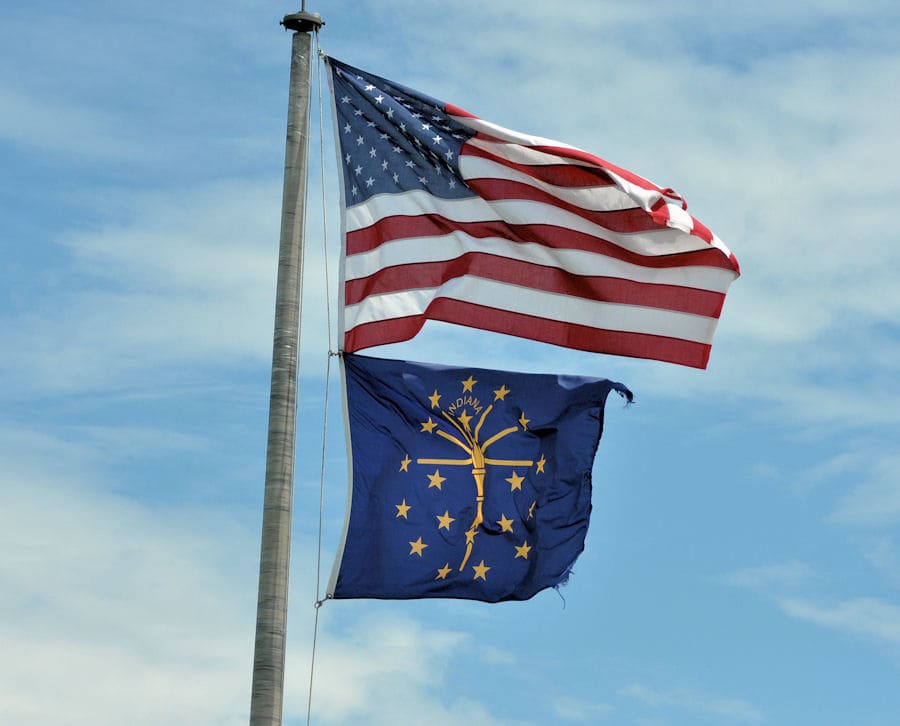INDIANAPOLIS (AP): Lawmakers advanced a bill Tuesday that would allow Indiana’s attorney general to appoint special prosecutors to take over criminal cases local authorities decide they won’t pursue.
The endorsed proposal ensures Indiana prosecutors can’t create lists of crimes they won’t prosecute, said bill sponsor Sen. Mike Young. He pointed to such decisions made by prosecutors in Boston, Chicago, and St. Louis to stop pressing charges in cases like trespassing, disorderly conduct, or prostitution.
“These prosecutors, they’ve got a list of crimes that they will not prosecute,” Young said. “The prosecutors don’t get to make the call on these things. It’s the people — through their elected representatives and senators.”
The Republican state senator introduced a nearly identical bill in the 2020 Legislature after Democratic Marion County Prosecutor Ryan Mears announced that his office wouldn’t pursue charges against adults for possessing about 1 ounce or less of marijuana.
Young maintained in the Senate corrections committee Tuesday that the bill’s latest iteration “has nothing to do with” the Marion County prosecutor, however, and said the legislation is aimed at any prosecutor in the state of Indiana that adopts what he called a “social justice prosecution” policy not to pursue charges for certain crimes.
“The bill is to ensure that if a prosecutor doesn’t do their job, that we have another method to ensure that the laws of the state of Indiana are upheld,” Young said.
The Senate corrections committee on Tuesday did not approve a separate measure that would have taken control of the Indianapolis Metropolitan Police Department away from the mayor of Indianapolis and the city-county council and into the hands of a five-member state board of police commissioners.
Republican Sen. Jack Sandlin, who authored the bill, said the new commission would address “trust issues” between the public and police, as well as reduce rates of violent crime which he attributed to “leadership issues” by city officials. Lawmakers instead redirected the issue to a summer study committee.
Another bill voted down by the committee would have additionally stripped power away from citizens’ oversight boards and given Indiana police chiefs “sole authority” over their departments.
Legislators in the full Senate moved two other bills Tuesday that could increase penalties for rioting or blocking traffic and expand immunity for business owners protecting their storefronts.
The proposals, both authored by Young, come in response to May 2020 protests against racial injustice and police brutality spurred by George Floyd’s death in Minneapolis police custody. In Indianapolis, it resulted in several nights of sometimes violent protests, as well as clashes between demonstrators and police.
One piece of legislation seeks to allow Indiana’s attorney general to prosecute criminal offenses that occur during an unlawful assembly. Under the measure, rioting would be raised from a Class A misdemeanor to a level six felony if there’s resulting property damage or serious bodily injury.
The felony further increases to a level five if it results in catastrophic injury, death or damage of at least $50,000.
Enabling rioting would additionally become a Class B misdemeanor. The charge applies to anyone present while members of an unlawful assembly are committing a felony, knows that the action is criminal and fails to leave the area or report the act to police. Currently, it carries no penalty.
Blocking traffic during a protest would be made illegal, too, unless authorized by the government entity that has permitted the public protest to take place. Cities or governments would also be permitted to fire employees and take away their pensions if they’re involved in rioting.
A second bill extends immunity to business owners who use firearms to protect their storefronts. By allowing store owners to point loaded or unloaded firearms in acts of self-defense, Young argued there would be less looting and “destruction” caused by rioters.
Both bills are now being taken up by legislators in the House.
The Senate overwhelmingly defeated a different bill a day earlier that sought to prevent municipalities from reducing public safety budgets, unless in response to a revenue shortfall. A reaction to the “defund the police” movement, the measure drew opposition from Republican lawmakers who cited undue restrictions on local governments to manage their budgets.

